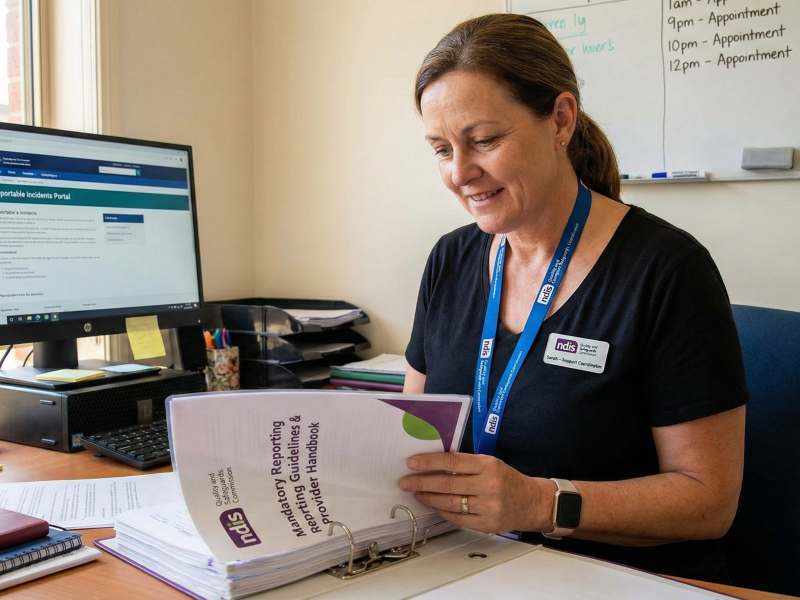The National Disability Insurance Scheme (NDIS) is an Australian Government initiative designed to support people with permanent and significant disabilities. The NDIS aims to create a society in which individuals with disability enjoy the same opportunities as others to lead productive and meaningful lives, through allocation of funding for NDIS Participants.
NDIS funding is financial support provided by the Australian Government to eligible people on the NDIS with permanent and significant disabilities, known as NDIS Participants. The NDIS operates by giving this funding directly to individual NDIS Participants, according to their individual support needs and goals. By putting the Participant at the centre of decision-making, the scheme allows more choice, control, and improved quality of life for individuals with disability in Australia.
The Aim of the NDIS
Introduced in 2013, the NDIS provides personalised funding to eligible Australians, empowering them to access essential services and live more independently. The main objective of the NDIS is to deliver comprehensive, long-term support that allows people with disability to fully engage in daily life. Instead of a one-size-fits-all approach, the NDIS offers tailored support based on an individual’s needs and goals.
NDIS Funding
NDIS funding isn’t handed out in cash; instead, it’s allocated in a Plan approved by the National Disability Insurance Agency (NDIA), the Government body which manages the scheme. Instead of regarding disability support as a handout, the NDIS considers people to be the active agents in their own life. It is this person-based system that offers NDIS Participants the autonomy to decide on their service Providers, establish goals, and plan how they expend their funding.
Alongside individualised assistance, the NDIS also makes key investments in early intervention strategies, and also assists carers and families of NDIS Participants. By fostering independence, social inclusion, and economic participation, NDIS Participants are more able to achieve their individual goals; whether that be pursuing education, gaining employment, developing relationships, or enhancing daily life and overall well-being.
Want to Attract More NDIS Clients?
Get expert advice on how to market your services, connect with clients, and grow your practice.
How Does NDIS Funding Work?
The NDIS provides funding for a variety of services and supports, delivered by NDIS Providers, to meet the individual needs of each Participant. Funded supports include assistance with daily living, personal care, therapies (such as physiotherapy, speech therapy), aids for mobility, home and vehicle modifications, transportation support, and support for community access. It also includes capacity-building programs to assist people in developing skills in work, education, support coordination and managing daily living.
Through these supports, the NDIS helps people with disability improve their independence, pursue meaningful goals, and actively engage in their communities.
Eligibility Requirements
To be eligible for NDIS funding, a person must meet the following criteria:
- Be under 65 years of age at the time of application.
- Be an Australian citizen, a permanent resident, or hold a Protected Special Category Visa’
- Have a permanent and significant disability that substantially affects their ability to carry out daily activities
- Individuals with:
- Developmental delay, or
- Risk of disability progression
may also be eligible for early intervention supports under the NDIS.
Referrals Start With Reputation – We’ll Help You Build Both
From networking tips to service refinement, we guide NDIS providers toward lasting impact.
NDIS Plan Development
The NDIS funds cover supports that are “reasonable and necessary” to help people reach their goals. After a Participant is accepted into the scheme, they sit down with a planner or Local Area Coordinator (LAC) to design a tailored NDIS Plan. This Plan identifies the supports they need in areas of daily living, employment, education, and social participation.
- Once a Participant’s NDIS Plan is approved, funding is distributed over different budget categories. Regular review of the plans ensures the supports are up to date and relevant to the needs of the Participant.
- Participants can decide how to control their funds—alone, with the help of a Registered Plan Manager, or through the assistance of NDIA.
This adaptable, personalised approach is central to enabling individuals with disability to live in greater independence and confidence.
Support Budget Categories
NDIS Plan funding is divided into three fundamental support budgets: Core Supports, Capacity Building, and Capital Supports.
- Core Supports fund daily activities like personal care, preparing meals, transportation, and community engagement.
- Capacity Building Supports assist Participants in building skills in areas such as relationships, health, daily living and employment/education.
- Capital Supports are available to spend once only on items such as assistive technology, specialist equipment, or home modifications.
After a Participant’s NDIS Plan is approved, they are allocated an overall amount of funding, divided into the 3 support budget categories. What Participants then do with their funding varies based on what the Participant’s needs, goals and preferences- according to their approved NDIS Plan.
Participants are able to determine the combination of Providers and services that work best for their goals, and some money can be transferred between sub-groups within the same type of support.Plans are reviewed on a yearly basis or as required, to update changing goals and circumstances.
Managing Funding
There are three ways that NDIS Participants may manage funds under their NDIS Plan:
- Self-managed: The Participant is given the money and makes payments and issues invoices himself.
- Plan-managed: A registered plan manager deals with the budget, pays invoices, and does paperwork.
- NDIA-managed: Providers are paid directly by the National Disability Insurance Agency (NDIA).
Generally, self-managing NDIS funding provides NDIS Participants with the greatest amount of control over their supports; however, Participants can also ask for a Plan review if their support needs or personal circumstances change.
Determining Supports
The NDIS takes into account a number of factors in determining what supports are “reasonable and necessary.” To be considered reasonable and necessary, a support or service:
- Must be related to the Participant’s disability.
- Must not include day-to-day living costs that aren’t related to the Participant’s disability support needs—like buying groceries.
- Should represent value for money, meaning the cost is reasonable for the benefit it provides.
- Must be likely to be effective and work well for the Participant .
- Should take into account the support the Participant already gets from government services, their family, carers, community, or support networks.
For example, a person with limited mobility may be funded for physiotherapy, occupational therapy, mobility aids and transportation assistance.
The flexibility and individualised nature of NDIS funding enables Participants to have choice and control over the services provided to support their disability needs; however all supports claimed by NDIS Participants must meet certain standards to ensure that the scheme remains viable for future generations. These standards ensuring the supports relate directly to the individual’s disability, are not already funded by other government services (eg Medicare), are funded by the NDIS, and are shown to provide value for money.
Support
Need assistance? Reach out to the friendly Avaana team for Provider guidance, or go to the NDIS website for assistance, planning resources, and more information.


